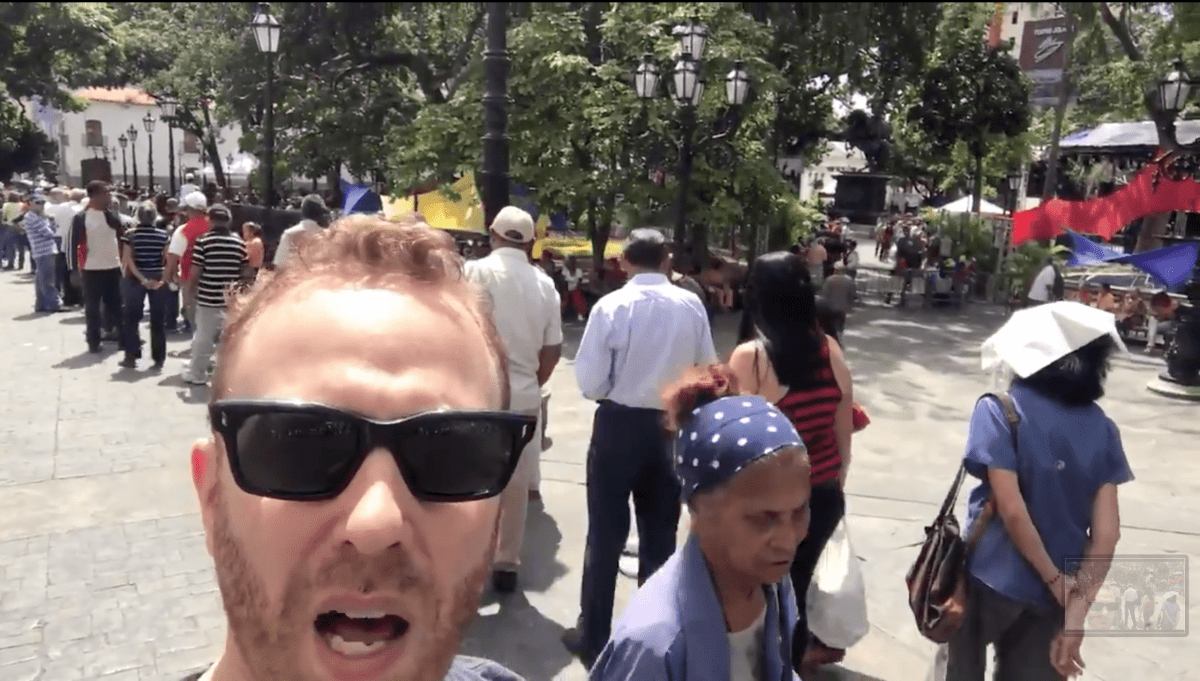By Mathew Foresta
Earlier this week Univision journalist Jorge Ramos and his crew were detained by Venezuelan authorities. According to Ramos this was a reaction to some uncomfortable questions he asked Venezuelan leader Nicolas Maduro during an interview. Ramos detailed his experience being detained and having his crew’s equipment and electronic devices seized in an Op-Ed for The New York Times.
It took little time for Maduro’s American supporters to initiate a smear campaign against the journalist.
At the vanguard of all this is Grayzone Project editor Max Blumenthal, a blogger with a history of ethically questionable behavior. The Daily Beast’s Charles Davis reported that Dania Valeska Aleman Sandoval was tortured for protesting the regime of Nicaraguan leader Daniel Ortega. Blumenthal’s Grayzone Project used video of her torture extracted confession to criticize those opposing Ortega’s regime. Additionally, he tweeted a picture of himself with a bag over his head to mock a report that Syrian civilians were desperately trying to make homemade gas masks. Journalist Sulome Anderson recently announced she was suing Blumenthal and Norton “for libel and defamation.”
Blumenthal was amongst a group of reporters questioning Ramos after his return to Miami.
Continue reading “Are purveyors of fake news endangering the lives of real journalists?”





